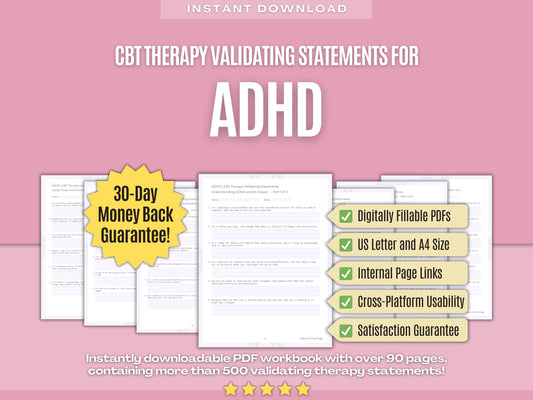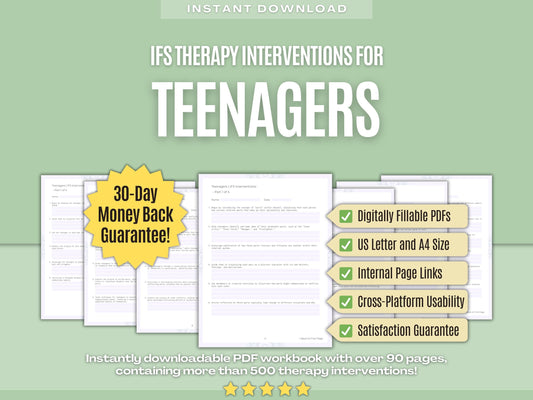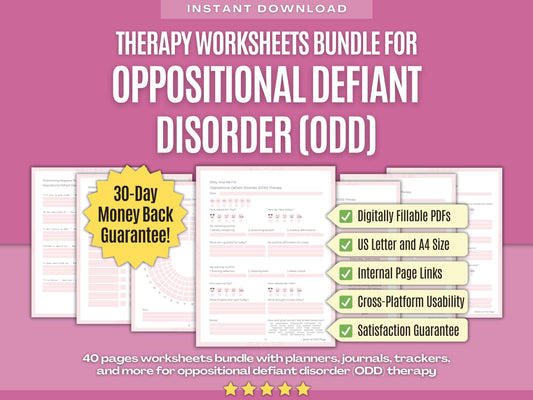Elevate Your Therapy and Guide Your Clients to Inner Healing with Our Loneliness Validating Therapy Statements! ✨
1. Beginning Our Work Together
- I want to commend you for taking this step to begin our work together in addressing your feelings of loneliness.
- As we embark on this journey together, know that I am here to provide you with support and guidance.
- You've already shown strength and courage by choosing to confront your loneliness rather than letting it consume you.
- I'm here to listen to your experiences with empathy and understanding.
- You're not alone in this journey; I'm here to provide support and guidance every step of the way.
- Together, we will explore the underlying causes of your loneliness and work towards finding strategies to address them.
- I want to assure you that there's hope for feeling more connected and fulfilled in your life.
- I'm here to help you cultivate a deeper understanding of yourself and your needs.
- Your willingness to be vulnerable in our sessions is a powerful step towards healing.
- I believe in your ability to make meaningful changes in your life and find a sense of connection.
- Your presence in therapy is valued, and I'm committed to creating a nurturing environment for your healing.
2. Understanding Loneliness
- Let's begin by exploring what loneliness means to you and how it manifests in your life.
- Loneliness can stem from various sources, and together, we'll work to identify what might be contributing to your feelings.
- We'll explore the difference between solitude and loneliness, as well as how they intersect in your life.
- We'll delve into any underlying beliefs or thought patterns that may be exacerbating your feelings of loneliness.
- Loneliness can be both a temporary state and a chronic condition, and it's essential to address it with compassion and understanding.
- Understanding the impact of technology and social media on your sense of connection is an important aspect of our work together.
- Your cultural background and societal influences may also shape your experience of loneliness, and we'll explore those factors together.
- Loneliness can sometimes mask underlying emotions such as sadness, grief, or anxiety, and we'll work to uncover those layers.
- We'll discuss coping mechanisms you've used in the past to manage loneliness and evaluate their effectiveness.
- We'll explore ways to cultivate a sense of connection and belonging in your life, both within yourself and with others.
- We'll work together to challenge any negative self-talk or beliefs that may be perpetuating your feelings of loneliness.
3. Mindfulness for Connection
- Let's explore mindfulness as a tool to help you cultivate a deeper sense of connection within yourself and with others.
- Through mindfulness practices, we can develop a greater awareness of our thoughts, emotions, and bodily sensations related to loneliness.
- We'll explore mindfulness techniques such as deep breathing, body scans, and guided meditation to help you anchor yourself in the present moment.
- Mindfulness can help you become more attuned to the beauty and richness of everyday experiences, fostering a sense of gratitude and connection.
- Through mindfulness, you can cultivate a deeper understanding of your own needs and boundaries in relationships, leading to more fulfilling connections.
- We'll practice mindfulness exercises that focus on compassion and empathy, fostering a sense of connection and belonging with others.
- By cultivating mindfulness, you can learn to savor moments of connection and intimacy, enhancing your overall sense of well-being.
- Mindfulness practices can serve as anchors during moments of loneliness, providing a sense of grounding and stability.
- Through mindfulness, you can develop a greater sense of connection to the natural world and to the larger community around you.
- We'll explore how mindfulness can support you in building a strong internal foundation of self-worth and resilience, which can buffer against loneliness.
- Mindfulness offers a pathway to inner peace and contentment, which can serve as a source of strength during times of loneliness.
4. Dialectical Behavior Therapy (DBT) for Emotional Understanding
- Let's delve into Dialectical Behavior Therapy (DBT) as a powerful approach for enhancing emotional understanding and regulation.
- I want to acknowledge the strength and courage it takes to explore your emotions and engage in the DBT process.
- Through mindfulness practices, we'll learn to observe and describe your emotions with curiosity and compassion.
- It's okay to feel overwhelmed or uncertain as we delve into your emotions; I'm here to help you navigate those feelings.
- DBT offers practical skills for regulating emotions, such as mindfulness, distress tolerance, emotion regulation, and interpersonal effectiveness.
- I want to assure you that your emotions are valid and worthy of attention, even if they may feel overwhelming at times.
- I'm here to provide validation and support as you learn to navigate the ups and downs of your emotional landscape.
- We'll work on developing a toolkit of skills and techniques that you can rely on to manage loneliness and other challenging emotions.
- We'll explore how your thoughts, behaviors, and emotions are interconnected, helping you understand the underlying dynamics of your loneliness.
- We'll work on building resilience and increasing your capacity to tolerate distressing emotions, empowering you to cope more effectively with loneliness.
- We'll explore the importance of self-care and self-compassion as essential components of emotional understanding and regulation.
5. Interpersonal Therapy (IPT) for Enhancing Relationships
- Let's delve into Interpersonal Therapy (IPT) as a powerful approach for enhancing your relationships and addressing feelings of loneliness.
- I want to commend you for your willingness to explore your interpersonal dynamics and work towards building more fulfilling connections.
- Through IPT, we'll explore how your communication patterns, expectations, and role transitions influence your relationships.
- It's okay to feel vulnerable or apprehensive as we delve into your relationships; I'm here to provide guidance and support.
- IPT offers practical strategies for improving communication, resolving conflicts, and fostering intimacy in your relationships.
- We'll work on identifying and challenging any negative beliefs or assumptions you hold about yourself or others that may be hindering your relationships.
- IPT encourages us to view relationships as a source of support and fulfillment, and I'm here to help you cultivate healthier connections with others.
- I want to reassure you that it's possible to develop more satisfying and meaningful connections with others, even if it feels challenging at times.
- IPT emphasizes the importance of setting boundaries and expressing your needs and desires in your relationships, empowering you to create healthier dynamics.
- We'll explore how social support networks and community connections can contribute to your overall well-being and sense of belonging.
- We'll celebrate your progress and successes, no matter how small, as you work towards building more fulfilling connections with others.
6. Emotion-Focused Therapy (EFT) for Emotional Loneliness
- Let's explore Emotion-Focused Therapy (EFT) as a powerful approach for addressing emotional loneliness and fostering deeper connections with yourself and others.
- I want to commend you for your willingness to delve into your emotions and explore the underlying causes of your loneliness.
- Through our exploration, we'll uncover the deeper meanings and significance of these emotions in the context of your relationships and experiences.
- It's natural to feel vulnerable or overwhelmed as we explore your emotions; I'm here to provide guidance and support through this process.
- EFT offers practical techniques for processing and expressing your emotions in a safe and supportive environment.
- We'll work on developing self-compassion and self-acceptance as you explore and embrace your emotional experiences.
- We'll explore how your relationship with yourself impacts your ability to connect with others and form meaningful relationships.
- I want to reassure you that it's possible to develop a deeper sense of self-understanding and connection, even in the face of loneliness.
- I'm here to provide guidance and feedback as you practice applying EFT techniques in your daily life and interactions with others.
- EFT encourages us to view emotions as valuable sources of information and wisdom, guiding us towards deeper understanding and connection.
- We'll celebrate your progress and successes, no matter how small, as you work towards healing emotional loneliness and fostering meaningful connections.
7. Delving into Relationship Dynamics
- It sounds like you're feeling disconnected from others, and that can be really challenging.
- It's understandable that you might feel uncertain about reaching out to others when you've experienced rejection in the past.
- Feeling isolated in your relationships can create a sense of longing for deeper connections.
- Your past experiences can significantly influence how you approach and perceive relationships now.
- It's common to seek validation and connection from others, especially during times of loneliness.
- It's important to recognize the courage it takes to address feelings of loneliness and vulnerability.
- Loneliness can be both a result of and a contributor to patterns in relationships.
- It's okay to have mixed feelings about reaching out to others for support.
- Your feelings of loneliness are not a reflection of your worth or likability.
- Loneliness can bring up a range of emotions, from sadness and longing to frustration and anger.
- Your experiences with loneliness can provide valuable insight into your needs and desires in relationships.
8. Connecting through Music Therapy
- It's understandable to feel drawn to music as a way of connecting with your emotions and experiences of loneliness.
- Your connection to music is deeply personal and can serve as a powerful tool for processing and understanding loneliness.
- Music has the ability to evoke a wide range of emotions, providing a safe space for exploring the complexities of loneliness.
- It's important to trust in the healing power of music and allow yourself to fully engage with the sounds and rhythms that resonate with you.
- Your relationship with music is unique and deserves to be honored and explored in therapy.
- Music has the ability to transcend language barriers and connect us with others on a deeper level.
- It's important to approach music therapy with an open mind and a willingness to explore new ways of connecting with yourself and others.
- Your musical journey is an ongoing process of discovery and growth, and it's okay to embrace the evolution of your relationship with music.
- It's okay to use music as a form of self-expression, whether through singing, playing an instrument, or simply listening to your favorite songs.
- Music therapy offers a means of connecting with others through shared musical experiences and collaborations.
- Your participation in music therapy is an act of self-care and self-compassion, and I'm here to support you in your journey.
9. Reflecting on Progress
- It's important to take a moment to acknowledge the progress you've made in your journey towards addressing loneliness.
- Your commitment to therapy and your willingness to engage in the process is a testament to your strength and resilience.
- Even small steps forward are meaningful and deserve to be recognized and celebrated.
- Reflecting on your progress allows you to gain insight into the patterns and changes occurring in your relationship with loneliness.
- It's okay to acknowledge that progress may look different for everyone, and that comparison to others' journeys is not always helpful.
- Your commitment to self-improvement and personal growth is inspiring, and it's important to honor that dedication.
- Reflecting on your progress allows you to recognize the changes occurring within yourself and in your relationship with loneliness.
- It's okay to acknowledge that healing takes time and patience, and that progress may unfold gradually.
- Your willingness to confront difficult emotions and experiences is a sign of your commitment to personal growth and healing.
- Reflecting on your progress allows you to cultivate a sense of empowerment and agency in your life.
- It's okay to acknowledge that setbacks and challenges are a natural part of the healing process, and that they do not diminish your progress.
10. Moving Forward from Loneliness
- As you continue on your journey towards healing from loneliness, remember that it's okay to take things one step at a time.
- Your resilience and courage in facing loneliness head-on are admirable, and they will continue to guide you as you move forward.
- Moving forward from loneliness involves embracing vulnerability and openness to new experiences and relationships.
- It's important to recognize that moving forward from loneliness is a gradual process that requires patience and self-compassion.
- Moving forward from loneliness often involves challenging old beliefs and patterns that no longer serve you, and that can be both liberating and daunting.
- It's okay to seek support and guidance from others as you navigate the challenges of moving forward from loneliness.
- Your journey forward is unique to you, and it's important to honor and respect your own pace and process.
- Moving forward from loneliness may involve taking risks and stepping outside of your comfort zone, but it's through those experiences that growth and transformation occur.
- It's important to surround yourself with supportive and understanding individuals who can offer encouragement and companionship as you move forward.
- It's okay to seek professional help and therapy as you work through the challenges of moving forward from loneliness.
- Moving forward from loneliness involves embracing a mindset of abundance and gratitude, recognizing the richness of connections and experiences available to you.
We hope that our validating therapy statements for Loneliness therapy will help you to elevate your therapy practice and guide your clients to inner healing! Do you need more validating therapy statements for Loneliness therapy? Find them all in our Digital Workbook! Or do you have any questions or suggestions for us? Please feel free to contact us at any time!


















